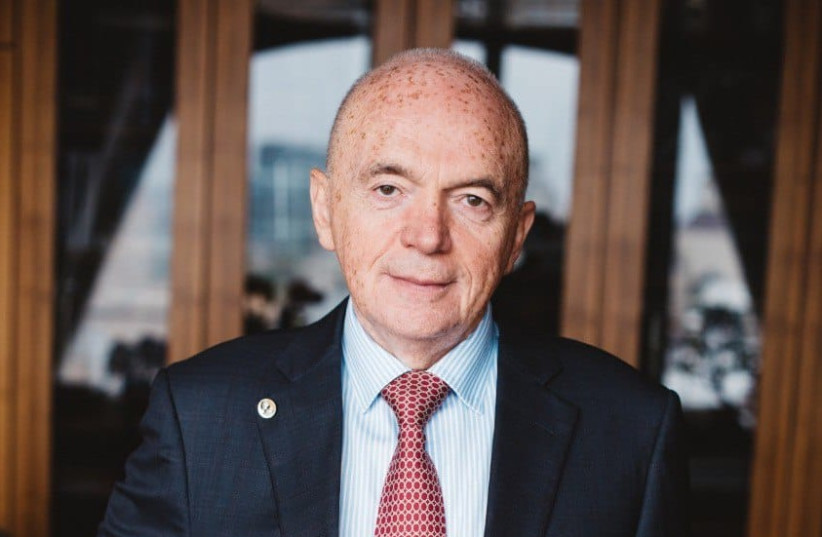A monument dedicated to the thousands of Jews killed near Soroca in Moldova will be opened on Thursday.
The new monument will be opened at the site where 6,300 Jews were executed during the Holocaust.
Thanks to both the efforts of specialists at the Yad Vashem Holocaust Memorial Center and the testimonies of relatives of the victims, it was possible to establish the names of 1,000 Jews who died in the area. The painstaking work to identify all of the victims is still ongoing.
The memorial to the Jews shot in Soroca is a composition of 20 bronze stelae, which symbolizes chopped tree trunks. The first row, which is made of marble, contains the names of the Jews who were shot. The name of the memorial refers to the total number of victims among the Jewish population of the region: “The place of torment and death of 6,000 Jews killed by the Nazis in 1941.”
Establishing the memorial
The initiator and sponsor of the project is Prof. Grigory Roytberg, president of the Moscow Jewish Religious Community (MERO) and academician of the Russian Academy of Medicine Sciences, whose relatives are buried at the site. He was assisted by members of the Moldova Jewish community, including its head Alexandr Bilinkis, descendants of Jews shot in Moldova during World War II, activists of the Russian Jewish Congress (REC) and other officials from Israel and Moldova.

Prior to the event, Roytberg, who was born and raised in Soroca, called the massacre “a personal tragedy” because his family members were also victims of the shootings. According to the professor, the idea of installing the memorial originated from his father, and the implementation of the project was repeatedly postponed due to difficulties with financing and the COVID-19 pandemic.
“We must not forget about these terrible events,” Roytberg said, adding that “we should not forget that if they happened, it means that their repetition is still possible.”
The organizers of the opening ceremony emphasize that the symbolic significance of the memorial correlates with a well-known expression from Jewish scriptures. “Any person who has left prematurely is as if [they are] a torn page of the Torah,” one of the organizers said.
“The people who died there could have given offspring: children, grandchildren, new Nobel Prize laureates, great artists, good doctors, kind and honest people who would have lived on the land of Moldova, but they were simply crossed off the list of the living.”
“The place of torment and death of six thousand Jews killed by the Nazis in 1941.”
Soroca Holocaust memorial
Nazi crimes in Moldova
In 1941, soldiers of the German Einsatzgruppen extermination detachments and Romanian forces carried out the collection and mass execution of Jews of Bessarabia – in particular, residents of Soroca, the village of Capresti and its surrounding villages, and Ukraine.
According to Dr. Aaron Schneer, a researcher at the Yad Vashem Memorial, the events that took place during the Second World War in Moldova are less known, because, for many years, they were talked about less than the tragedies of other areas.
“The tragedy of the Jews of Moldova began from the first days of the war,” Schneer said. “The Romanians did not have a clear plan of destruction. All powers and permits for the liquidation of the Jewish population were left to the discretion of local leaders, and the perpetrators were uncontrolled. Each prefect or governor, each military commander made a decision independently. Moreover, it is important to note that they received permission to liquidate Jews from the mouth of the prime minister of Romania, Marshal Ion Antonescu, himself.”
According to the researcher, the participation of the Romanian population in the extermination of Jews was less systematic and more chaotic than that of the Germans.
